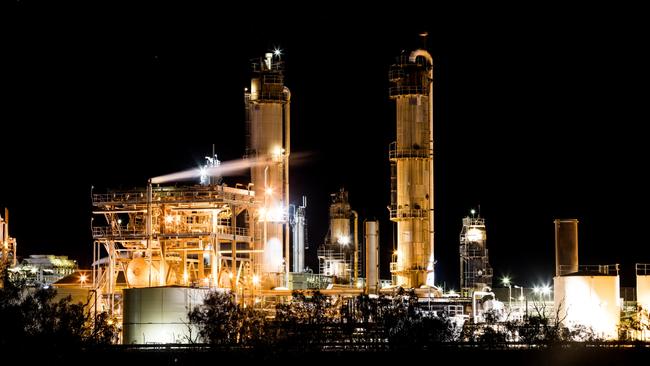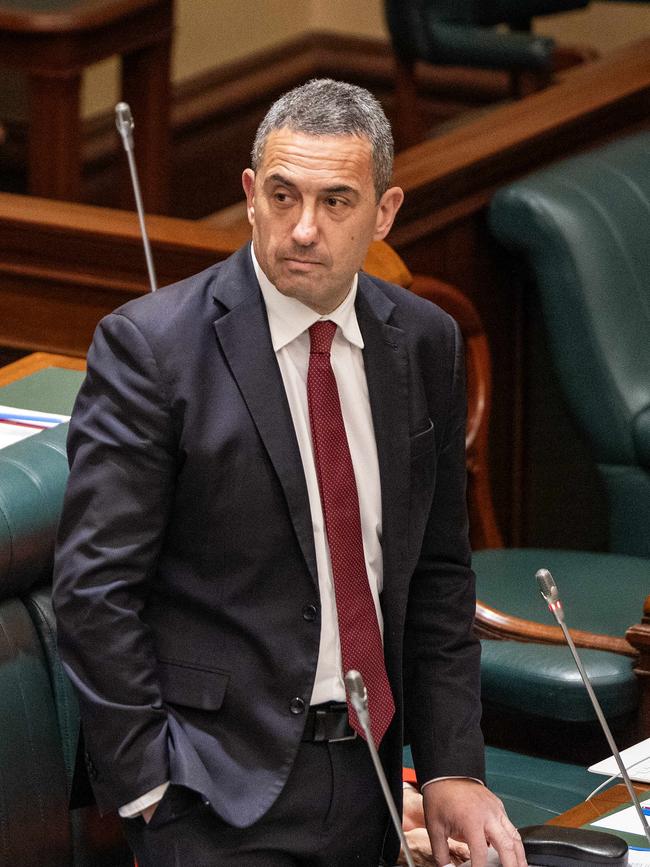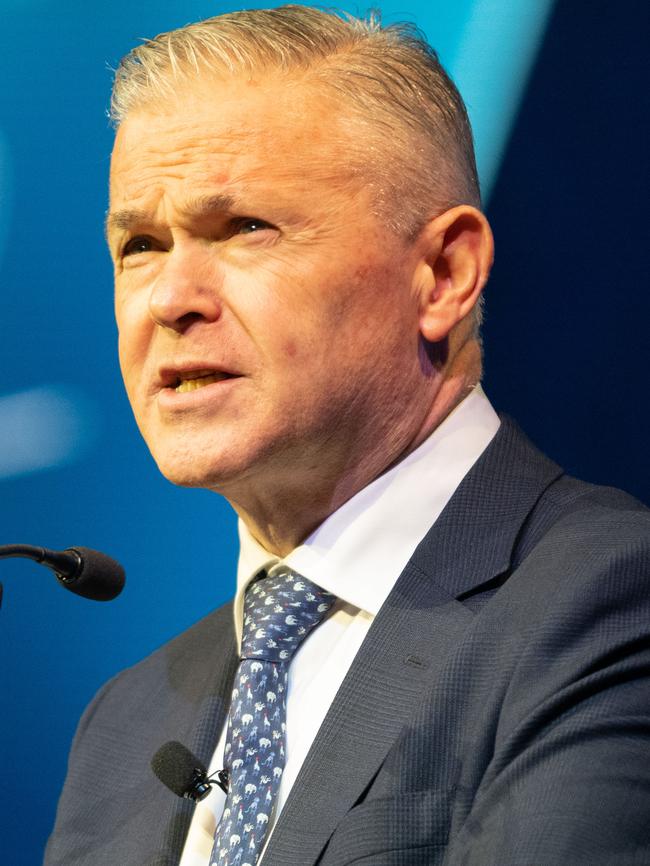SA’s economy would lose out on more than $100m annually if Woodside merger eventuates
SA’s economy would lose out on a staggering amount each year if a merger with the much-larger WA-based resources firm Woodside goes ahead.
SA News
Don't miss out on the headlines from SA News. Followed categories will be added to My News.
South Australia’s economy would lose out on more than $100m annually if a merger between Santos and much-larger WA-based resources firm Woodside proceeds.
The state’s largest company has struggled with ongoing legal challenges over its $5.3bn Barossa gas project off the coast of the Northern Territory, with a case currently before the Federal Court bankrolled by the federally-funded Environmental Defenders Office (EDO).
Laws recently passed in SA give the energy minister authority to block the transfer of gas extraction licences, and the government has vowed it will use all available regulatory powers to protect SA jobs.
Santos and Woodside have confirmed they are in early talks to create an $80bn merged global oil and gas giant, as fossil fuel producers bulk up as part of a wave of consolidation across the country.
Analysts at investment bank UBS say a deal could unlock up to $300m in annual savings through measures such as consolidating to a single head office, executive team and board, and streamlining other corporate functions.
Assuming the head office would be based in Perth – Woodside has a value nearly three times that of the $22.7bn Santos – the loss to the local economy would total upwards of $100m.

The talks come as Santos struggles with a series of problems. Work on its Barossa project has been curtailed by two legal challenges, which the company has warned threatens its production timetable.
Santos insists those problems are not unique to it, and sources also highlight several legal challenges faced by Woodside.
Woodside’s chief executive Meg O’Neill has warned she expected further opposition as its own $16.5bn Scarborough project materialises.
The EDO has represented applicants in both cases.
Federal funding was cut to the office in 2013 but was reinstated this year when the federal government committed $10m over four years for environmental community legal services. Last year, the EDO’s expenses totalled $14.2m.
SA Energy Minister Tom Koutsantonis said he was not familiar with the details of the arrangement but did not have an issue with such a group receiving taxpayer funding.
“I suspect, whether they were funded or not, they would have made this case anyway,” he said.
“Activists raise money, whether it’s funded by the government or otherwise. The South Australian government funds people who have different points of view to it all the time.”
He said he was “very concerned” at the prospect of the state losing the corporate headquarters of Santos but insisted the government “will not be a bystander” to any deal.
“If Woodside want to have ambitions to take over Santos, to merge with Santos and relocate any resources out of South Australia, they’ll be having serious discussions with the South Australian government,” he said.
Mr Koutsantonis said new state laws give him, as minister, the authority to approve transfer of licences.
“Whatever is licensed in South Australia, any change of ownership requires authorisation by the South Australian government,” he said.
Asked whether he would use that power to stop a merged entity from extracting resources in South Australia, he said “no, what I’m saying is I’d use all of my regulatory powers to protect South Australian jobs”.
But he described a potential deal as “opportunistic” and said any merger was a long way off.
“I think they (Woodside) are trying to take advantage of Santos’ relatively undervalued share price,” he said.
“This is very, very early. I’m not sure how realistic this is. This could go away, or this could be something that works down the track.”
Opposition Leader David Speirs said suggestions that Santos could be moving out of the state were “deeply concerning” and called on the government to “fight hard to keep its headquarters here”.


A Woodside-Santos merger might not proceed smoothly, with questions over Woodside’s interest in some assets owned by Santos.
Santos holds quality assets in PNG. But its WA assets service the domestic market, and doubt remains over whether the company’s massive investment in coal seam gas in Queensland was worth it.
Merger talks could involve a break-up of Santos, with the GLNG gas export project in Queensland potentially bought by Gina Rinehart’s Senex Energy, while fellow Adelaide producer Beach Energy could snap up Santos’ Cooper Basin and WA assets.
Analysts also say the potential merger could cause concern for the Australian Competition and Consumer Commission given the potential impact on the domestic market.
“We see potential competition issues in the … domestic gas market,” RBC Capital Markets analyst Gordon Ramsay said in a note on Friday.
In WA, both Santos and Woodside are material domestic gas producers which may create market concentration concerns, he said.
In eastern Australia, Woodside owns 50 per cent of the Bass Strait, and if this is combined with Santos’ Cooper Basin and Narrabri presence, it may “create ACCC concerns” over east coast Australia gas market concentration.
For investors, there are benefits in combining Woodside’s LNG and US oil operations with Santos.
“Woodside has a material US deep water Gulf of Mexico oil presence, and we see the addition of the Santos Pikka Alaska asset providing an additional onshore oil production growth asset,” Mr Ramsay said.
Santos’ Cooper Basin assets would hold little interest for Woodside.
“This would not be a merger of equals, as Woodside is a much larger company than Santos,” he said.
Analysts at Citi said the deal would allow Woodside to fix its stagnating portfolio and Santos to fix its balance sheet.
The biggest sticking point, though, would be Woodside’s board coughing up enough value to appease frustrated Santos shareholders.




